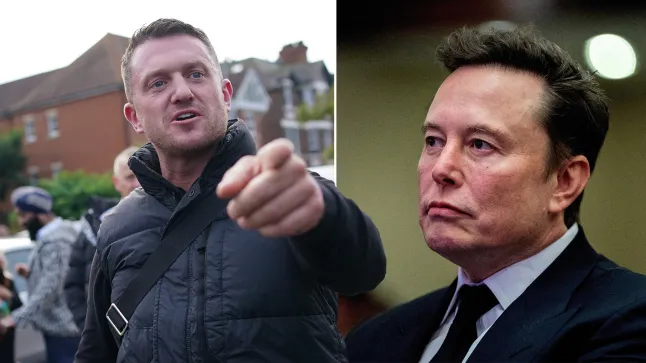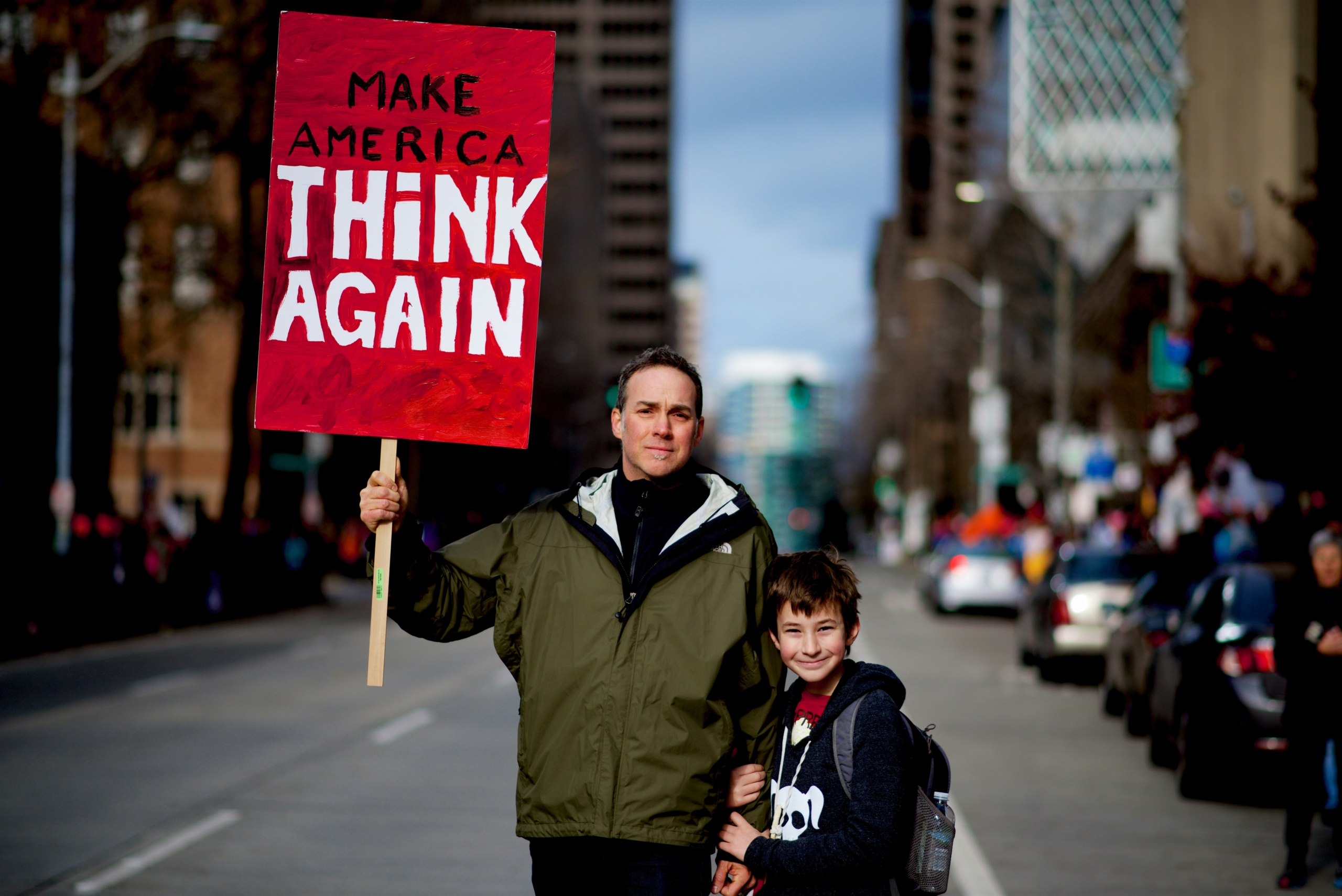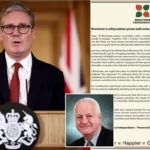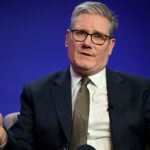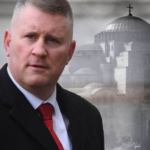In recent days, comments made by Elon Musk regarding Tommy Robinson have ignited a political firestorm in the United Kingdom. The billionaire entrepreneur and social media magnate has a penchant for stirring up controversies, but his remarks about the controversial figure have led to unprecedented backlash from Labour MPs. The incident has not only sparked outrage within political circles but has also captured the attention of the public, leading to a spirited debate about free speech, accountability, and the responsibilities of influential figures like Musk.
Elon Musk’s Controversial Remarks Ignite Political Debate
Elon Musk, known for his unfiltered approach to social media, recently made a comment that has drawn significant attention: his endorsement of Tommy Robinson, a far-right activist infamous for his polarizing views on immigration and Islam. Musk’s remarks, which many interpreted as a tacit endorsement of Robinson’s controversial stances, have raised eyebrows among political leaders and citizens alike. The implications of such comments from a figure of Musk’s stature are considerable, given his enormous influence over social media discourse and public opinion.
The comment came during an exchange on Twitter, where Musk expressed support for free speech while seemingly aligning himself with Robinson’s notorious perspectives. This has led to a robust defense of Robinson by some of Musk’s followers, further amplifying the division within the UK political landscape. Critics argue that Musk’s comments trivialize serious societal issues and embolden extremist views, while supporters defend his right to express opinions that challenge the status quo.
Political analysts have weighed in on the potential ramifications of such remarks. Some believe that Musk’s comments could influence a segment of the electorate who feel alienated by mainstream political narratives, thereby exacerbating existing divisions. Others argue that influential figures like Musk should be more responsible with their words, particularly when they have the power to shape public discourse.
As the dust settles from Musk’s comments, the broader implications for political discourse are becoming clearer. The incident is more than just a social media exchange; it reflects a growing trend of influential figures engaging in political dialogue and the consequences that follow. With the UK gearing up for a crucial election cycle, the intersection of technology, politics, and free speech is more relevant than ever.
The controversy serves as a reminder of the complexities surrounding political engagement in the digital age. While social media has democratized communication, it has also given rise to misunderstandings and the potential for miscommunication. Musk’s comments have highlighted the fine line between advocacy for free speech and the endorsement of harmful ideologies, sparking a critical discussion on the responsibilities of those with large platforms.
As the political ramifications of Musk’s remarks unfold, one thing is clear: the debate surrounding free speech, accountability, and the influence of social media figures will likely remain a hot topic for the foreseeable future.
Labour MPs Respond Strongly to Musk’s Tommy Robinson Comments

In the wake of Musk’s controversial comments, Labour MPs wasted no time expressing their outrage. Prominent figures within the party condemned Musk’s remarks, asserting that they provide a platform for extremism and undermine the values of tolerance and inclusivity that the Labour Party stands for. This strong response underscores the sensitivity surrounding Robinson’s figure and the broader implications of endorsing such views in contemporary society.
Shadow Home Secretary Yvette Cooper was among the first to respond, describing Musk’s comments as “irresponsible” and “dangerous.” She emphasized the need for public figures to be cautious in their endorsements, particularly when the stakes involve societal cohesion and mutual respect. Cooper’s statements resonated with many in the party and reinforced the notion that accountability is essential, regardless of a person’s wealth or status.
Other Labour MPs echoed Cooper’s sentiments, with some calling for a boycott of Musk’s companies, such as Tesla and SpaceX, as a form of protest against his apparent endorsement of Robinson. This reaction indicates a growing trend among politicians to hold influential figures accountable for their words and actions, particularly when those actions can incite division within communities.
The Labour Party’s swift and unified response reflects a broader commitment to combating hate speech and extremism. Many within the party view Musk’s comments as not just an isolated incident but as part of a larger narrative where influential individuals can inadvertently provide legitimacy to harmful ideologies. This incident serves as a call to action for politicians to remain vigilant in safeguarding democratic values against rising extremism.
As the dialogue continues, Labour MPs are using this opportunity to reaffirm their commitment to social justice and the protection of vulnerable communities. They argue that it is imperative for those in positions of power to recognize their influence and act responsibly, especially in a climate where misinformation and hateful rhetoric can spread like wildfire.
Despite the outrage, Labour MPs are also emphasizing the importance of dialogue over division. They believe that while criticism is necessary, it should also pave the way for constructive conversations about the challenges society faces, rather than simply condemning those who hold differing views.
Political Tensions Rise: Musk’s Impact on UK Politics

Musk’s comments have undoubtedly intensified political tensions in the UK, particularly as the country approaches pivotal elections. The Labour Party’s strong reaction signifies an awareness of the potential consequences of inflammatory rhetoric in the political sphere. As the political landscape shifts, figures like Musk could play a significant role in influencing public opinion, which has led to increased scrutiny of their statements and actions.
The impact of social media on political discourse cannot be overstated. Musk’s comments have sparked a wave of online discussion, reflecting the polarized state of contemporary politics. Some supporters argue that Musk’s remarks contribute to a necessary debate about free speech and the right to express unpopular opinions, while detractors see them as an endorsement of intolerance and division.
Political analysts are now speculating about the long-term implications of such controversies. Will Musk’s comments galvanize a new political movement or simply alienate moderate voters? The unpredictable nature of social media dynamics makes it challenging to predict the outcome of such exchanges, yet it is clear that they can have immediate and far-reaching consequences.
Moreover, the incident highlights the intersection of technology and politics, where decisions made in cyberspace can resonate in the real world. Politicians are now more cognizant of the fact that their words can be amplified—or distorted—by social media, leading to a need for careful communication strategies that take these factors into account.
As tensions rise, some political experts suggest that this could be a turning point for how politicians engage with the public. The need for transparency, authenticity, and accountability in the age of social media is becoming increasingly apparent. Politicians may find themselves under increased pressure to respond to influential figures and their comments in ways that resonate with their constituents.
While the political landscape may seem fraught with tension, this moment also presents an opportunity for meaningful engagement. As citizens become more vocal about their concerns, politicians have the chance to listen and adapt their messages accordingly. The interplay between Musk’s remarks and the Labour Party’s response could serve as a catalyst for a broader conversation about the role of public figures in shaping political discourse.
A Cheerful Twist: Public Reaction to the Heated Exchange
In the midst of the political whirlwind, the public reaction to Musk’s comments has been quite colorful. Social media platforms have been abuzz with memes, jokes, and light-hearted commentary that reflect the absurdity of the situation. Many users have taken the opportunity to poke fun at the entire exchange, showcasing the resilience and humor of the online community in the face of serious political discourse.
Some netizens have embraced the opportunity to create satirical content around Musk’s comments, using humor to diffuse the tension. Memes featuring Musk alongside quotes from Robinson have flooded timelines, drawing laughter and engagement from those who may not align with either party. This playful approach to serious topics illustrates the power of humor as a coping mechanism in navigating political controversies.
In addition to humor, the public has also shown a willingness to engage in discussions about the issues raised by Musk’s comments. Many people are using the occasion to voice their opinions on free speech, tolerance, and the responsibilities of influential figures. Grassroots conversations are emerging, demonstrating that even in the face of political tension, citizens are eager to articulate their views and advocate for meaningful change.
Interestingly, the episode has also sparked a wave of creative expression. Artists and content creators are harnessing the momentum of the debate to produce thought-provoking works that address the underlying themes of the controversy. From artwork to blogs, the public is channeling their reactions into creative outlets that encourage dialogue and reflection.
Despite the heavy political narratives surrounding Musk and Robinson, it seems that the public is keen to turn the situation into an opportunity for engagement and entertainment. The cheerful twist to this heated exchange highlights the ability of individuals to find common ground and navigate complex issues with a sense of humor and creativity.
As the debate surrounding Musk’s comments continues, it’s clear that the public is taking an active role in shaping the conversation. Whether through humor, creativity, or constructive dialogue, citizens are making their voices heard in a way that fosters a more vibrant and inclusive discourse.
Elon Musk’s comments on Tommy Robinson have undoubtedly ignited a firestorm of political debate, provoking strong responses from Labour MPs and reflecting the complexities of modern political discourse. While tensions have risen, the public’s cheerful response showcases the resilience and creativity of individuals in navigating heated conversations. As the political landscape continues to evolve, one thing remains certain: the interplay between influential figures, social media, and public opinion will shape the future of political engagement in the UK and beyond.
